You know when Wall Street is buying up all of the music catalogs that there is something good going on in the music industry. What’s good is that, according to the RIAA in 2022, gross combined revenue (including all sources) is at an all-time high. The audiophile print magazines would tell their audiences that it is because the so-called boom in vinyl sales, but they would be about as factually accurate as the Q-Anon origin story with the Vegan pizza place in Washington, D.C., where a former U.S. Secretary of State allegedly ran a child sex trafficking ring, in her spare time, from the restaurant’s basement (there’s no actual basement in the establishment, but let’s not let facts get in the way of a fact-free political topic). What is fact today is that the big money, private equity entities are offering and paying legacy artists gigantic sums of money to acquire and own their back catalogs of music. Why? It isn’t because the sales of Fleetwood Mac’s Rumours or the Best of Hall and Oates on vinyl is worthy of investing a billion dollars into owning their rights. It is because today, people (and companies that we subscribe to for that matter) pay to download and, more likely, stream music, and that money is adding up fast. Just look at the RIAA graph to see the proportion of combined physical media versus streaming to make that case.
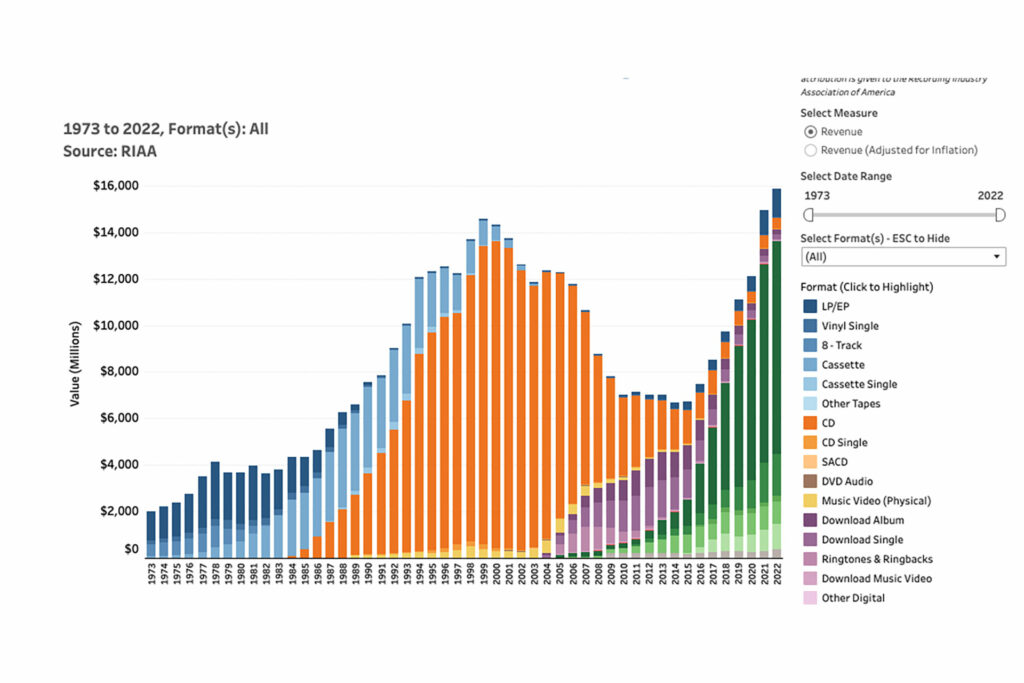
Here’s a scary reality that the audiophile industry needs to address and soon… according to the RIAA – PHYSICAL MEDIA SALES ARE BASICALLY DEAD compared to the last boom times. And the chances that physical media sales are coming back ever again are quite remote. New vinyl does sell as a niche audio format and, if you look at the percentage increase that it has risen during the COVID era, you see an impressive percentage increase for the more than 100-year-old audio format, but the reality is that vinyl sales are very small relative to the overall sales in the music industry in 2022 . Yes, new plants make environmentally awful (talk about off-putting gases and use of plastic derivatives) new vinyl sales numbers look like they are going up. If you took a long-ago lost $10,000 IRA and convinced Goldman Sachs (they normally want about $25,000,000 to open a new account, just for the record) and got them to beat the S&P 500 every year – you might see $11,000 or $11,500 in your account in a year or two. While your percentage growth would be impressive, the overall volume of dollars in your account is actually pretty low, unless you plan to retire in sub-Saharan Africa. The same percentage versus actual volume analysis is true for vinyl, as vinyl simply doesn’t sell very much new product, even at higher retail LP prices since the COVID lockdown. Will vinyl remain a niche way to sell music to people who are nostalgic, or to folks like me who are burned out from our digital daily lives? Maybe, but is vinyl the answer to the future of the audiophile hobby? Yes, vinyl is likely here to stay for a while, but does it represent the future of the music business or the audiophile hobby? Nope.
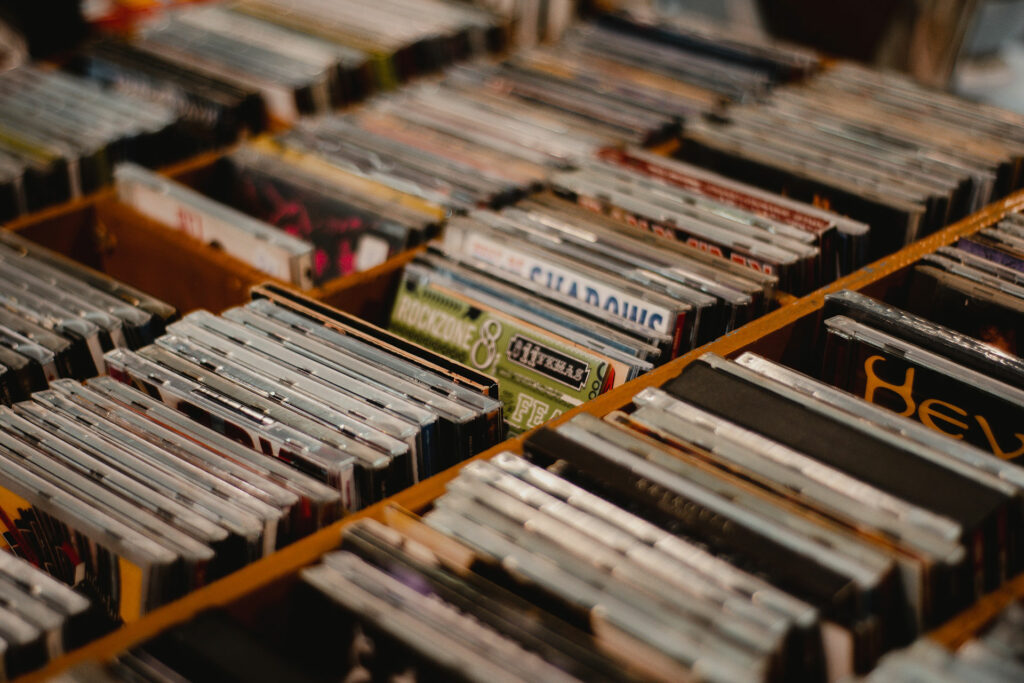
Can Physical Compact Discs Somehow Save the Day for the Audiophile Hobby?
As someone who spent every penny of their free money on said silver plastic chunks of audio goodness over decades, not years – the answer is a resounding and absolute NO! While traditional audiophiles and the audiophile as a hobby as a whole tend to be drawn to dead formats (look at the price of a DVD-Audio and SACD-playing Oppo universal disc player since the global cellphone conglomerate saw this physical media trend for both audio and home theater years and years ago, thus stopped making components that spin discs), there is little to nothing anybody can do to bring back the Compact Disc as a dominant music playback format in the twenty-first century. Do I still buy Compact Discs? I do, but mainly to either support a new artist (similar to buying a concert t-shirt at a show) or to keep my two-terabyte raided SSD hard drive, filled with my legacy digital music collection, up to speed and/or to fill in holes in my collection. More often than not, I can find what I am looking for on the used market via eBay, and the same goes for vinyl, both of which doesn’t help the music industry in any meaningful way. Pre-pandemic, you could stop into a neighborhood estate sale or even a pawn shop and find piles of used vinyl that sold for $1, $2 or maybe $3 bucks per used record. I just wrote about how crypto-like scammers are set up at places like the Smorgasbord event east of Downtown Los Angeles with aims of selling foodie Millennials beat to death copies of The Doors LA Woman for $80 or Metallica’s Kill Em All for $100. Used vinyl that never gets better-sounding has boomed in price like a share of Dogecoin when, like crypto, there’s little to nothing behind the increase in price.
So What Is an Audiophile To Do When Fueling His or Her System with the Best Music These Days?
Streaming digital music is the obvious and most affordable answer. Today’s best mainstream streamers can deliver basically unlimited access to music in HD resolutions for roughly the cost of a good entry-level turntable. That’s CD or much higher-resolution quality on nearly every record ever built for about $500 total. You might say that you have to spend on a streaming service, but are you telling me that you are not one of the nearly 200,000,000 people with an Amazon Prime account? That’s unlikely, and free shipping and pretty damn good TV shows and MGM movies aren’t the only goodies that you get for your $100-ish subscription fee. You also get CD and HD access to an absolute ton of music in an easy to use/integrate interface. And Amazon Music isn’t the only source. For about the cost of one Compact Disc, you can subscribe to Qobuz or Tidal for the most in HD music. Spotify has a ton of streaming options including some well-curated playlists and “stations.” Pandora, while not as HD-tastic (but almost was, I have heard), still has the best algo for making up AI-generated playlists. Put in “Super Freak” by Rick James, use the thumbs-up or thumbs-down button, and you will have a pretty damn good playlist in mere minutes that only gets better with time.
Ripping music onto a hard drive is more of an old-school, digital audio option, but thanks to the Digital Millennial Copyright Act (DMCA) (learn more here), you have every right to archive your CDs, and why the hell not? Being able to rip other silver discs, such as DVD-Video, Blu-ray or Ultra HD Blu-ray, may not be the same, as these have different laws, and often, different copy-protection schemes. One common FutureAudiophile.com reader objection to steaming is that they want to actually own the music, and that is absolutely legitimate. Buy the CD as I do, rip it onto a huge yet somewhat low-cost (these days) solid state hard drive (SSD), and attach said music drive (wired or wirelessly) to your streamer or hub, and you are in the game. Your discs can be stored, and you can get a bit perfect reproduction, so that it is basically impossible to hear the difference between your drive and the physical disc while not having to deal with bulky physical media or even large audiophile digital source components.
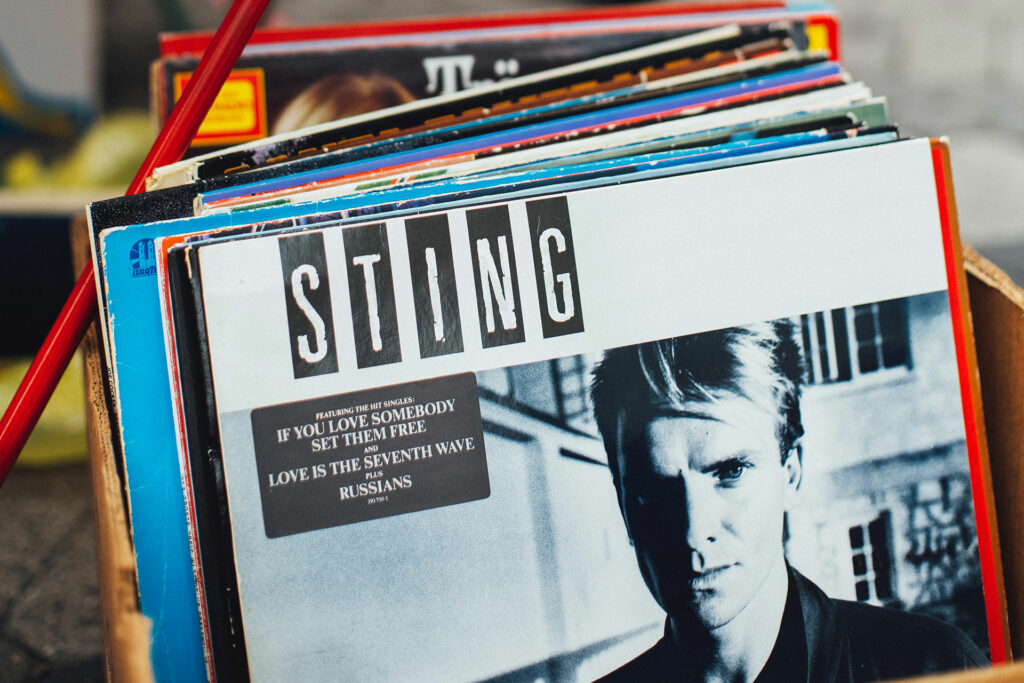
What’s the Good News for Audiophiles When Physical Media Sales Are Plunging?
The good news is that more and more people are listening to music. Lots more people, and the more people that listen to music, the more that will be compelled to find the audiophile hobby with designs on bringing better-than-ear-bud sound to their lives – not that there’s anything wrong with earbuds… Today’s affordable audio, as well as the audiophile Chi-Fi movement, make good audio much more affordable than in years past. The rise of these new Class-D power amps make it so that a big-sounding audiophile system doesn’t need to take up so much space. Digital audiophile streamers offer the same chance at system simplicity.
Millennials and the members of Generation Z don’t know a world without seemingly “free” unlimited access to music. MTV and FM terrestrial radio means little to nothing to them, while YouTube.com videos of a single popular or even legacy song frequently reaches 10,000,000-plus plays. These younger potential audiophiles live in a digital world and aren’t likely going to be communicating via a fax machine anytime soon, although I recently read that an audiophile company in Switzerland is making a high-end fax machine with “HD analog data transmission” performance. The new fax will cost $87,500, I was told.
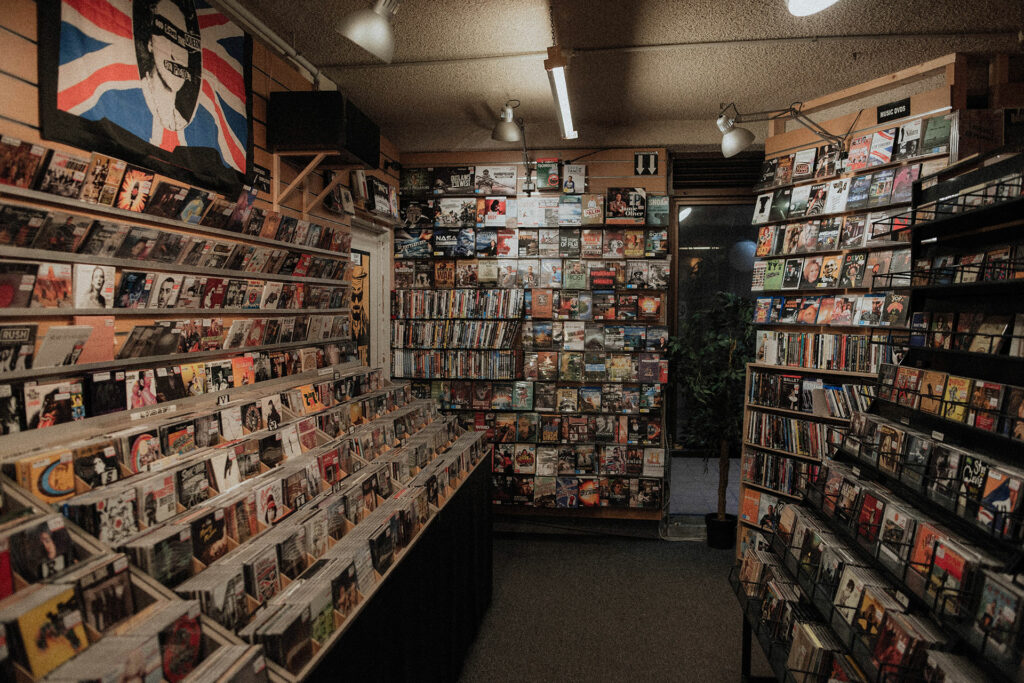
Should You Stop as an Audiophile, Stop Collecting Physical Media?
If you like physical media, then collect it. Plain and simple. I still buy Compact Discs and likely will, granted at a limited pace, for years to come. Going forward, my strategy for my audiophile musical sources is evolving quickly away from all-physical media, because that is what the HD music world demands, and that’s how our next generation of audio enthusiasts chooses to collect music. I just ordered up the new Peter Gabriel album i/o that was released this past holiday season. I’ve filled out my Tom Morello folder with a few records that I didn’t know had been released. Every once in awhile, I find that I am missing a catalog record, like the all-time classic Brothers in Arms by Dire Straits and Eric Clapton’s MTV Unplugged. These all-time classic audiophile records were so burned out for me that I just didn’t need/want them ripped on my hard drive, as I was trying to put them aside for a while, but in 2023, I realized that I was ready to take a fresh listen, so I bought and ripped the discs. I’d say 90 percent-plus of my music now is streamed, with a growing volume of it in above-CD resolutions, and that is a pretty good outcome so far. As Rush sang in (in Tom Sawyer) “He knows changes aren’t permanent But change is…”
Should You as an Audiophile, Abandon Your Turntable and Vinyl?
In almost every situation, the answer is a firm no. First pressing or special edition vinyl records can be collectable, thus retain real-world value. What I would hope that you do is to run (not walk) away from the guy at the foodie event who’s trying to sell you a worn-out copy of a record that sold for $2 at a yard sale that he’s now selling for $100. At the same time, don’t be a sucker. Collect the albums that you truly love and that you see long-term value in. Enjoy the hell out of said records in the format and make no excuses, just understand the value proposition that vinyl represents in today’s audiophile market.
Let’s face facts… we live in a very digital world and all of that instant access and and blue light isn’t the best thing for us physically or emotionally. Listening to music in any format is actually good for us in terms of blood pressure, stress relief, and even dealing with anxiety. If you need a break from your digital world, by all means drop the stylus on your favorite records from your collection. It isn’t an HD version of the record, but it is authentic to the way the record was released, and there is value to that as well. In-N-Out Burger doesn’t have a Michelin Star, but a Double Double is still pretty f**king good, my friends.
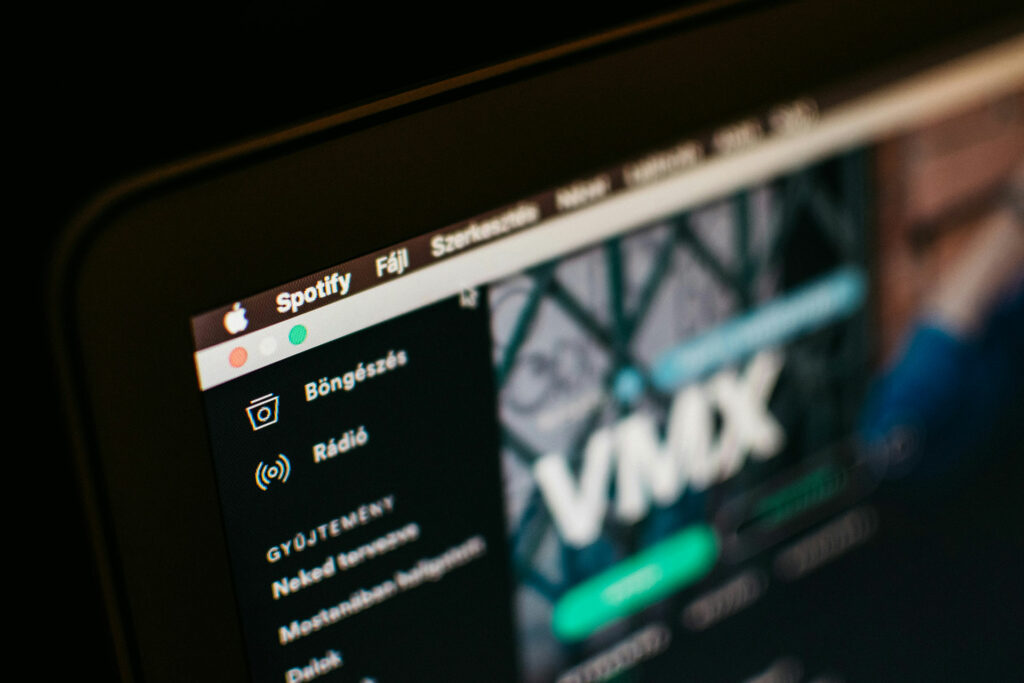
Final Thoughts on the Booming Music Industry Revenue…
Let us never forget that the volumes of young people who make music an all-day everyday part of their lives is a massively huge piece of good news. The fact that private equity is investing their money in rights means that music is less about selling physical widgets than it is selling the rights to art. That too is a good sign for the overall mainstream growth of music, thus tangentially the audiophile hobby. The only company that has been part of the top 10 highest valuations in the world for more than 10 years isn’t Apple or Facebook or Google. It is Microsoft, and they’ve been on the list for 30 years, selling software that you will note doesn’t come on physical media. What you are seeing with music sales is the music industry transitioning to a virtual software play. No matter how you feel about Microsoft, guys like Steve Ballmer can buy a multi-billion-dollar NBA team with a year’s worth of capital gains from his pile of money in ways that paupers like Oprah (sorry, Stedman, you will get your franchise) can’t keep up with. Perhaps the music industry making like the most successful software company on the planet for the last generation isn’t such a bad thing?
For those of us that see the frightening demographic issues pending with the audiophile hobby today, we need to be conscientiously showing younger people who are interested in music and technology about what positives being an audiophile can bring to their lives. We need to be helping them navigate the often-complex world of gear upgrades, acoustics and so much more. This week, I helped a 27-year-old man find work as an audiophile salesman here in Los Angeles as others did for me 30 years ago, thus paying it forward a bit. I’ve also been doing outreach to some women in tech groups who are into professional audio (mixing, engineering etc…) in hopes that they might want to be part of or know a little about our hobby. It is a long haul and by no means is it easy, but with these overall gross revenue numbers for the music business returned to boom times, the signs are very positive for the audiophile hobby under one caveat – we need to stop living in the past and accept the reality that things are going to be different than the past going forward. Often, that is a very tough one for audiophiles, but it is key to the longevity of the hobby long into the future.




My big problem with streaming is that the latest remaster of a title often sounds worse than the original eighties-released cd of same. I was in a salon a couple years ago and heard the Bluesound Node and Tidal, and thru the $150k of electronics between the Node & my ears I heard scratchy, terrible playback of Todd Rundgren and The Pretenders mixed in with amazing sounding Phil Collins (and other music of the era). Mastering (in my mind) matters more than hi-res or the format it’s stored in.
I use a Bluesound Node with a Bricasti DAC and Pass Labs electronics on Bowers & Wilkins 802 D4s. It is a VERY CAPABLE component.
I have the Bricasti M5 (their dedicated “core” or streamer) but I’ve been away thus I haven’t gotten that working yet but I will. I have tested the NAD CS-1 and Orchard Audio streamers in recent weeks and I have the HIFI ROSE streamer on its way. Greg Handy is working on the PS Audio AirLens and a few other streamers. We are working on getting a Lumin in as our new (he used to work for me at HomeTheaterReview.com doing audiophile) reviewer, Jim Swantko who has the older version.
The question is: does the streamer make much difference. We aren’t done digging into that but those who say that they can’t hear the differences in DACs are crazy or respectfully a little hard of hearing.
I agree with you that the mastering and recording process have a TON to do with the overall sound. Today’s MP3s sound fantastic too even if they come with a stigma from the old days of peer-to-peer file “sharing” back in the early 2000s. Those files were pretty crappy. Today’s are good.
One thing that you can do on the cheap (and it is great) is to get a big (I have 1TB) thumb drive and download your ripped music collection onto it. The Digital Millennial Copyright Act of 1999 says this is legal (they can’t stop you anyway but no worries as the law is behind you when it comes to ripping CDs) and stick it in the back of your Bluesound Node. You can manage the files locally. As long as you match the volume (essential as louder will always sound “better”) you can compare apples to apples with streaming and ripped files. I wouldn’t get to mental over that but it is a worthy experiment if you want to dive into this topic.
The Bluesound people who have helped me love Tidal and I think the price went down for their service to more like $12 per month from $20 (I will take what I can get these days in terms of savings anywhere that I can get them) but more often than not use Qobuz. I don’t freak if it isn’t HD either. I’ve used a number of CD resolution tracks recently with my DAC and preamp reviews. I want to know how a DAC “converts” for a variety of formats.
I hope this helps! 🙂
You are right that the mastering and mixes are more important than the format it is stored in.
That wasn’t my point but YES… the quality of the recording is the most important issue. The format helps you get closer to that quality so if you have a 24/192 file of a crappy recording – it will sound like crap at its best. A CD rip or even a modern (not like from Limewire.com or Napster aka: the old days) can sound GREAT at 16/44 because the recording is excellent.
Make sense?
I began collecting LP’s over 50 years ago, I can’t in good conscience recommend anyone to start now as LP’s have gained in popularity prices have gone up on everything related. As you stated LP’s I could have have purchased at a record fair costing a few dollars is now $20 and up. Maybe the decision is different for a young person with expendable income who doesn’t have the history I do.
On the other hand my grandson is into fixing up vintage cars and now has one he wants to keep stock with a cassette deck. I found us going through a used cassette bin and paying $4 to $5 for used cassettes. And, worse paid $50.00 for a used component dual cassette deck for him to record on, LOL Fun with vintage. I was surprised I found a deck that cheap. The same grandson I gave a year or so before a streamer with variable outputs and a set of powered speakers for his small bedroom. I put him on my Tidal family account.
Bryan – thanks for your excellent comments.
Your grandson is our future. The fact that he is getting into music and audio is THE BEST NEWS that I’ve heard all day!!!
I “inherited” a sick collection of hand-curated, first pressing LPs about 20 years ago. I ended up selling all 1,200 records to my friend, Brian Morris, at The House of Linn in the UK. The simple fact was: the collection was to physically large for my house then and especially today.
When you could go to the pawn shop and buy used LPs for $1 – that was kinda fun. Seeing hipster events ripping off our youth with spent-LPs for $100 used that have ZERO collectability is just a fraud. People see too. 8% of consumers bought physical media in 2022 (a record year for music sales) so basically nobody. Value speaks volumes.
j
An excellent interpretation of today’s music pulse and attitude. The love of music comes in many forms and shapes, as does our devices and media types. But in the end….It,s still the enlightenment and spirituality of the music that mends our souls,
Thanks Russ.
The audiophile hobby can get a little bit focused onto the gear more than the music sometimes. The music is the draw.